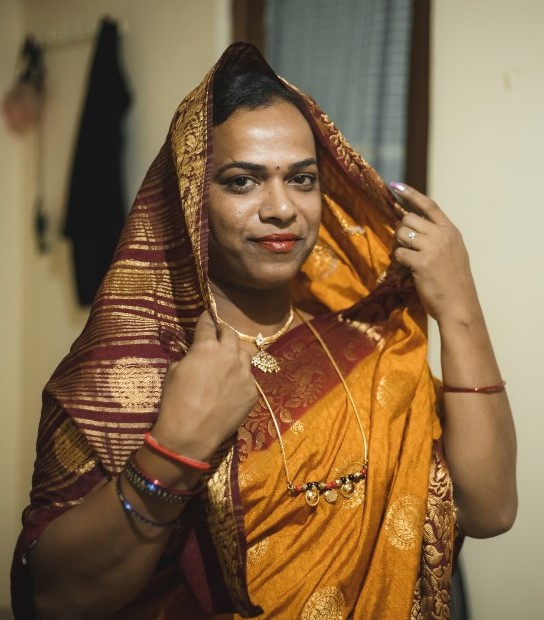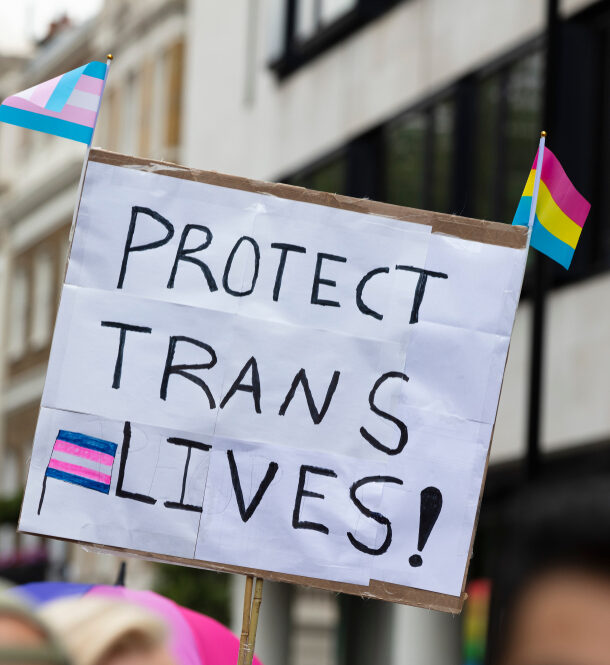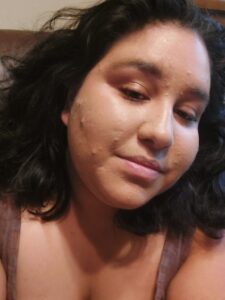To be trans on the Trans Day of Resistance is to start over. It’s to pick up the pieces left by our ancestors and search for new horizons to explore identity and survive together as a collective. To be trans and resist colonialism’s gender binary and love every part of your life and yourself because it is a part of a long history of artists and scholars and to also find space to grieve the unlived life since many folks are not able to express freely until adulthood.
The records of trans ancestors of trans masculine, trans femme and nonbinary folks can be difficult to access and even more difficult to get recognition as there is so much discourse about our right to exist. Often, there is an urge not to look back into the past and feel in depth the loss and pain of our ancestors because it reminds us of how we still carry a target on our backs. The lack of resources on trans ancestors in public education is done intentionally to center the gender binary and the fixation on biological sex as a determining characteristic of someone’s legacy.
Trans Day of Resistance is coined by grassroots community members instead of the Trans Day of Remembrance because the fates of our ancestors do not determine the longevity and growth of the trans community, culture and connections. The mourning is ongoing, but resources are still urgently needed, and we need to answer those calls to build from the ground up and protect our own through continuous advocacy, research, mobilizing and safe spaces. Sometimes it can feel like starting from scratch when running community events, but there is a history of trans figures challenging the norms in capitalist North America and demanding for there to be equal rights, equitable treatment and increased access to opportunities for trans folks.

An example of this is in the notable icons Marsha P Johnson and Sylvia Rivera who were human rights activists, feminists and advocates who developed a friendship with each other on the shared feeling of being outsiders in society and wanting to liberate trans folks from criminal persecution. They were on the front lines of state oppression in metropolises, they formed community groups at a time where their existence was viewed as a “sexual deviance” or “disease” in correlation to HIV-AIDS. Their friendship was stated to have grown apart as they lived in different cities, but it was Marsha’s death in 1992 that propelled Rivera to engage in political organizing and spoke up against the assimilationist gay rights agenda that sought to dismiss trans experiences from Queer movements.

There is a common misconception that transgender and gender non-conforming people are new, and a “trend” of groups more ‘radicalized’ as conservatives would put it. This is far from the truth. Like many nations of peoples, Trans people have existed since time immemorial, and their lived experiences were documented not that long ago. A social media platform Trans Masculine studies on Instagram shares the biographies of trans masculine folks in the late 1800’s, early 1900’s and into the 60’s, 70’s, 80’s and even later. This practice of celebrating histories of trans people and distinguishing how they were able to live full and interesting lives despite society not having much language or education on transgender identity is remarkable to see as a trans masculine nonbinary person myself.
Speaking of celebrating, a lot of the actions surrounding Trans Day of Resistance are to create spaces where trans folks can find like minded people, find access to resources and get mentorship from Queer Trans people who were able to secure roles as program managers, educators, social workers, lawyers and other professions which contribute to the creation of LGBTQ+ hubs. In Montreal, I attended a trans community dinner at Le Frigo Vert, and it was reassuring and hopeful to be able to share a good meal with other trans folks in the city where we engaged in conversation on local trans activism, personal interests and what we want to see happen in the community. I also find being able to run BIPOC Queer Trans markets creates a group of artists who can swap, sell and create pieces with each other, and it makes the market scene less competitive and more appreciative of the hard work and love that goes into people’s art.
On November 20th, there will be an anti-colonial and anti-fascist march in Toronto, my hometown, where local political representatives who are trans allies will speak on issues affecting the community and how they want to show their support as well as local trans activists leading the march in the Downtown core and taking up space on a day that acknowledges how many ancestors were unable to take up space as their true and fullest selves. There will also be after events that will lead discussions on trans feminine talks, how to address transphobic rhetoric, how to apply for funding as a community group and how to take up space with joy, creativity and passion as a trans person.

Atreyu Lewis (they/he) is an Anishnaabe Ojibwe and Punjabi queer trans student, organizer, community worker, and advocate who is a student at Mcgill University. They are from Tkaronto on treaty 13 territory and currently resides in Montreal on unceded Kanienkehaka territory. Their work is focused on equity-based solutions and approaches to justice for marginalized communities, Indigenous rights, disability justice, and anti-oppressive frameworks.

